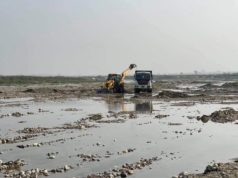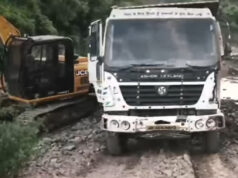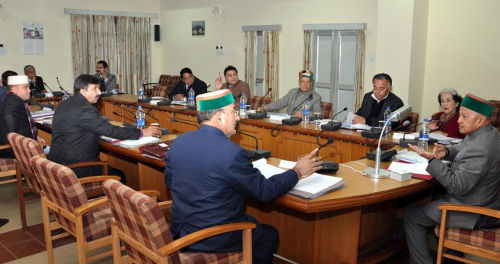In a bid to safeguard the delicate balance of its river ecosystems, the Himachal Pradesh State Government has taken decisive action by immediately suspending operations of all stone crushers situated on both perennial and non-perennial rivulets within the Beas river basin and its tributaries. The announcement was made by Chief Minister Thakur Sukhvinder Singh Sukhu, who expressed concern over the current monsoon season’s devastating impact on the region’s ecology and infrastructure.
The decision to halt stone crusher operations comes as a response to the alarming transformation of the ecosystem caused by heavy rainfall, leading to downstream havoc in the Beas river basin and its tributaries, particularly in districts like Kullu, Mandi, Kangra, Hamirpur, and along the Chakki rivulet in Kangra district. The primary objective behind the move is to ensure the safety of human settlements and infrastructure while preserving the fragile environment and ecology of the state.
It is important to note that the order does not apply to legally leased mining operations. Existing captive and temporary stone crushers are exempted from the scope of this directive, aimed primarily at unregulated and potentially harmful activities.
Chief Minister Sukhvinder Singh Sukhu stressed the significance of scientific evaluation and expert input in addressing the situation. He disclosed that the Department of Environment, Science, Technology & Climate Change has been tasked with convening a high-level consultation involving experts from prestigious institutions such as IITs, NITs, R&D establishments, and universities. This consultation aims to decipher the factors contributing to the current crisis.
Furthermore, the department will spearhead a comprehensive scientific study by establishing a Multi-Sectoral Expert Committee. This committee’s mandate is to assess the cumulative impact of both unscientific and illegal mining activities. Their findings will pave the way for the redefinition of distance limits, leading to more effective regulation and management of such operations. The overarching goal is to safeguard the state’s river systems and prevent any potential anthropogenic-induced disasters in the future.












